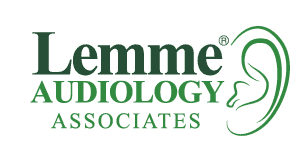Why do hearing aids cost so much?
This is a question asked by many individuals beginning their journey to better hearing. This is especially apparent with the options of Over-The- Counter (OTC) devices available today. There are several reasons why professionally fit hearing aids are more expensive than devices available at drug stores, big box stores and online.
- It is important to understand that hearing aids fit by hearing healthcare providers are very sophisticated signal processors. They are not a general amplifier that just make all sounds louder. These processors have many capabilities to process input at very fast speeds and handle various sound sources differently to offer the best sound quality and reduce background noise. The hearing aid constantly analyses input at the microphone and applies the appropriate processing strategies for that specific environment. When the listening environment changes, the hearing aid will automatically adapt and change to a different processing strategy. Hearing aid manufactures invest millions of dollars every year for research and development. This is necessary to verify the hearing aid technology performs as intended and test new innovations.
- Also, there is a tendency to compare hearing aids with other electronics. Although the processing capability of a hearing aid rivals a computer or tablet, we are not comparing apples to apples. Hearing aids are Durable Medical Equipment (DME). This is a medical device which is customized to manage an individual’s hearing loss. Hearing aids are not a mass produced electronic reaching the general public and being sold at high volumes like a personal computer. Therefore, production cost is not able to be reduced due to low volume. In 2019, total hearing aids sold was 4.23 million and total tablets sold was approximately 37 million. So, it is evident that hearing aids have a small market share when compared to the general electronic segment; therefore, production cost cannot be drastically reduced.
- Another factor contributing to the cost of a hearing aid is the professional fees and office visit charges associated with having your hearing evaluated, fitting the hearing aid, and continued care. Patient management and continued care is essential to ensure overall performance and benefit is optimize. It is recommended a patient be evaluated regularly to monitor changes in hearing, to update the hearing aid prescription, and to ensure the hearing aid is functioning appropriately. Hearing loss is many times associated with other medical conditions which need to be identified and appropriately managed, such as depression, cardiovascular disease, kidney disease, tumors, tinnitus and vestibular issues. Without coordination of a hearing healthcare provider, medical needs might be overlooked and cause harm if not treated. This level of care cannot be provided when purchasing an OTC device. Think of it like this: if you need a hip replacement, would you go to a big box store to buy the prosthetic hip joint you need and allow one of their employees to fit it inside your body? Or if you need a pacemaker, would you shop online to try to find the cheapest one or try to find one that’s on sale?
Hearing loss dramatically impacts communication and overall well being. It is well worth investing in your hearing healthcare to avoid the devastating impact of an untreated hearing loss. Our Audiologists have the education and experience that you need to help you onto the path of better hearing and communication. By calling our office at (814) 941-7770 to schedule a hearing aid consultation, you are taking a step in the right direction for better overall wellness and a better quality of life.

